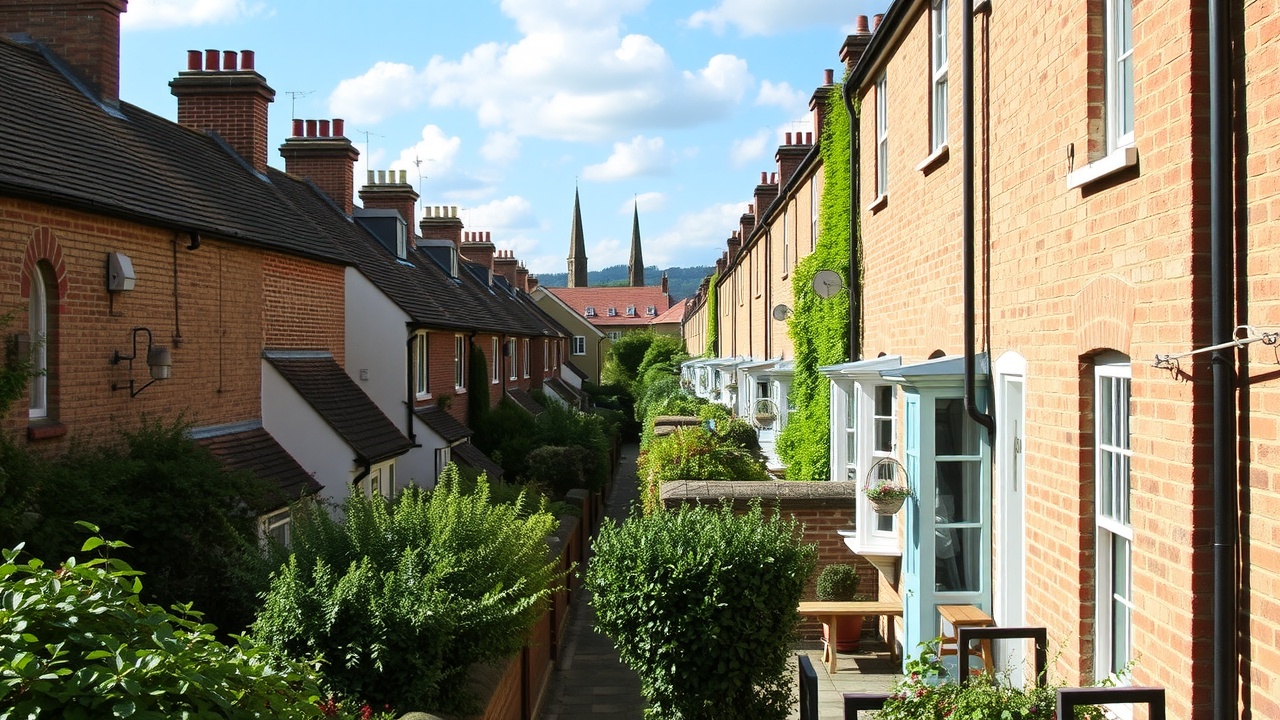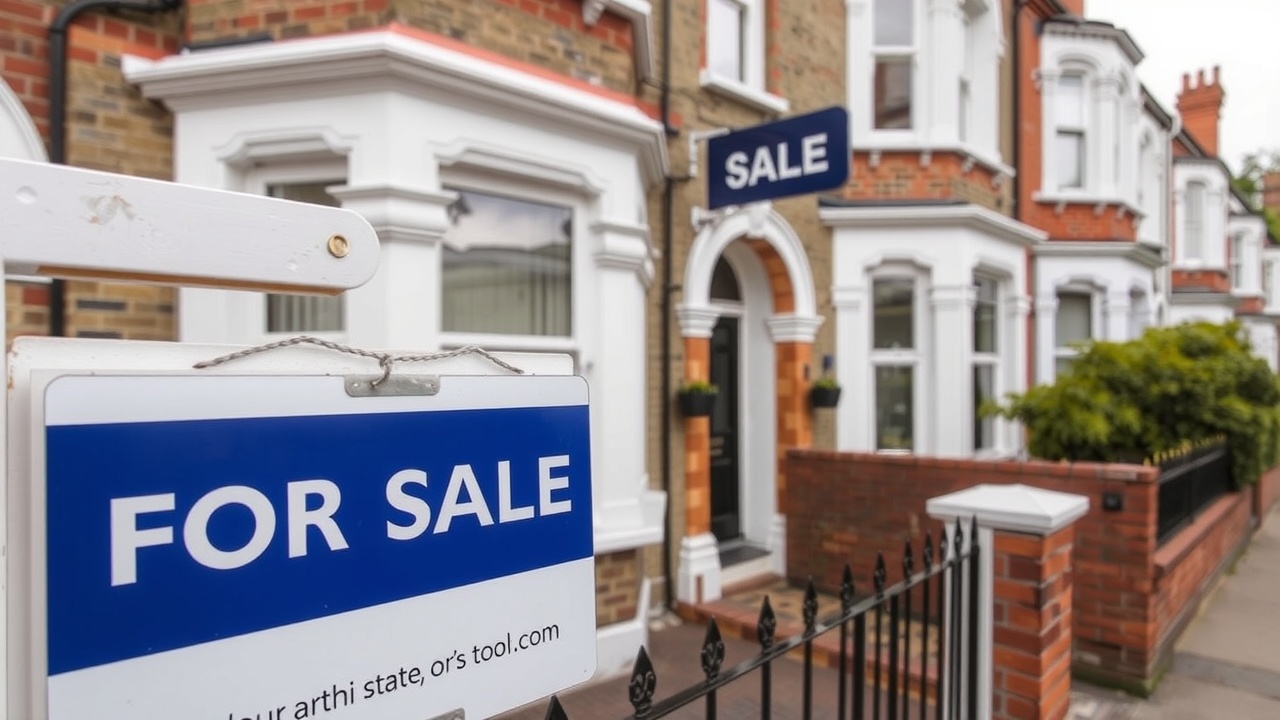
According to the Royal Institute of Chartered Surveyors' most recent survey, "international economic uncertainties" and the impending stamp duty hike are the main causes of the slowing housing market activity
According to the most recent Royal Institute of Chartered Surveyors (RICS) survey, the UK housing market is beginning to lose steam due to political and economic uncertainty.
Last month, overall home prices increased, but buyer demand declined. According to the survey, which is conducted among real estate professionals, including estate agents, buyer demand had a net balance reading of -14 percent in February, compared to -1 percent in January. Since November 2023, this reading has been the lowest.
According to RICS, decision-making is being impacted by the impending adjustments to the stamp duty thresholds, which is causing the slowdown.
Stamp duty will be applied to homes over £125,000 (or £300,000 for first-time buyers) as of April 1. Only properties valued over £250,000, or £425,000 for first-time buyers, are currently subject to the tax.
The stamp duty hike will result in an additional 2,500 in taxes for an average-priced home purchase in England, according to the Coventry Building Society.
The housing industry is facing a less favorable environment due to geopolitical and global economic uncertainties.
"As the temporary increase in stamp duty thresholds comes to an end, the UK housing market seems to be losing some momentum," says Simon Rubinson, chief economist at RICS. Respondents are also voicing some worries about the more unpredictable geopolitical landscape and the return of inflationary pressures.
Nevertheless, it is anticipated that sales activity will likely resume an upward trend in the coming months, along with a rise in prices.
Inflation in the United Kingdom increased by more than anticipated in January, reaching 3% from 2% to 5% in December. On both sides of the Atlantic, US President Donald Trump's tariffs are also raising concerns.
There has been "a mood of risk aversion in global financial markets and among UK homebuyers in recent weeks," according to Tom Bill, head of UK residential research at the real estate firm Knight Frank.
He continues: "The majority of UK mortgage rates are still above 4 percent, which is controlling demand, for two reasons that are outside the government's control: Trump's unpredictable trade policies and increases in German defense spending.
Moneyfacts reports that the average rate for a two-year fixed residential mortgage is 5point 35 percent. Five percent is the average rate over five years.
How is the housing market in the UK doing?
According to the RICS survey, overall home prices are still rising, albeit slowly.
The most recent net balance for house price growth was +11 percent, which is still in line with a modest price increase. In the past two months, though, this has decreased, easing from +25 percent in December and +21 percent in January.
Indicators of home prices also show a slowing real estate market. After rising 0.6 percent in January, home prices decreased 0.1 percent on a monthly basis in February, according to mortgage lender Halifax.
"There is an appetite for the Bank to go further," according to RICS, even though respondents applauded the Bank of England's recent interest rate cut on February 6.
Both buyers and sellers are hoping for more cuts in the upcoming months, despite the fact that the market has been confident over the last 12 months as buyers have moved because of a better interest rate environment and lower inflation, according to Tomer Aboody, director of specialist lender MT Finance.
"The housing market will require some intervention to breathe new life into it, even though sales volumes are up and still far below historical levels.
The majority of RICS respondents anticipate that home prices will increase during the upcoming year. In fact, the year-ahead price expectations series' net balance is +47 percent, which is roughly consistent with the average reading reported over the previous six months.
Rubinson remarks: "The increased flow of existing stock becoming available, which gives property buyers more options, continues to be a key support for the market." For now, though, the leading indicators surrounding the new build are still muted.
Bill at Knight Frank says that there is also uncertainty about the inflationary impact of any policies and what measures the government may announce in this month's Spring Statement.
"Markets continue to anticipate two rate cuts from the Bank of England in 2025, and we continue to anticipate single-digit growth in home prices," he continues, "but some prudence is reasonable.
What's going on with the rental market?
According to RICS, the demand for rentals has decreased once more, but the supply of rental properties has decreased more quickly, which has resulted in higher rent increases.
For the fourth consecutive month, tenant demand was just below zero, resulting in a net balance of -4 percent in February. According to RICS, rather than a sudden decline, this suggests a generally stagnant trend.
Additionally, with a net balance of -22 percent, landlord instructions are still showing negative momentum.
A net balance of +34 percent of survey respondents anticipate rental prices to increase over the next three months, despite the muted demand environment.
Rubinson says: "The key RICS metric that measures rental expectations is still pointing to further increases, despite a flatter trend in demand for private rental properties. This shows that the supply issue affects all tenures.
A former RICS residential chairman and north London estate agent Jeremy Leaf adds: "Affordability is still keeping rent increases in check, but the shortage of supply, especially of smaller apartments and homes, has undoubtedly prevented more significant declines in activity over the past few weeks.














Leave a comment on: RICS: The UK housing market begins to slow down